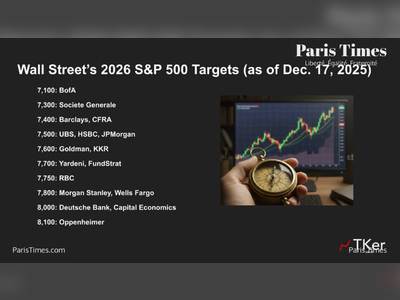Global Economic Outlook: Inflation Pressures and Central Bank Responses
Economies worldwide face heightened inflation and shifting monetary policies as central banks respond to ongoing economic challenges.
The global economy is currently experiencing significant inflationary pressures, with consumer price indices rising in multiple regions, including North America, Europe, and parts of Asia.
Recent data highlight that inflation rates in the United States have remained above 5% annually, prompting the Federal Reserve to adopt a cautious approach in its monetary policy.
In response to these developments, the Fed has raised interest rates continuously over the past year, aiming to temper demand and stabilize prices.
In Europe, the European Central Bank (ECB) has also initiated rate hikes to combat inflation, which has surged due to escalating energy prices and supply chain disruptions exacerbated by geopolitical tensions.
The ECB's approach reflects a growing concern over inflation persistence and its impact on economic recovery in the Eurozone, where inflation rates have reached levels not seen in decades.
The Bank of England has similarly adjusted its monetary policy by increasing interest rates, driven by rising inflation and pressures from domestic energy costs.
Analysts note that the UK's inflation rates have consistently exceeded the government's target, leading to increased scrutiny of the central bank's strategies.
In emerging markets, central banks are facing unique challenges as they balance the need for economic growth with inflation control.
Countries such as Brazil and Turkey have seen sharp increases in their inflation rates, prompting aggressive rate hikes.
These adjustments aim to stabilize domestic currencies and control escalating living costs for consumers.
Supply chain issues, particularly those stemming from the COVID-19 pandemic and subsequent lockdowns in parts of Asia, have continued to contribute to global inflationary trends.
The bottlenecks in supply chains have impacted the prices of goods, causing fluctuations in market stability.
Furthermore, the ongoing conflict in Ukraine has created additional pressure on food and energy prices globally, further complicating the situation for both consumers and policymakers.
Emerging economic data suggests that while some nations are beginning to show signs of economic resilience, the persistent inflationary environment poses risks to sustained recovery.
Wage increases in several sectors have occurred as employers seek to attract and retain talent amid labor shortages, contributing to further inflationary pressures.
As central banks navigate these complex dynamics, policymakers globally are faced with the challenge of enforcing monetary stability while fostering conditions for economic growth.
The evolving situations in major economies indicate that the interplay between inflation control and economic recovery will be a focal point in monetary policy discussions in the coming months.
Recent data highlight that inflation rates in the United States have remained above 5% annually, prompting the Federal Reserve to adopt a cautious approach in its monetary policy.
In response to these developments, the Fed has raised interest rates continuously over the past year, aiming to temper demand and stabilize prices.
In Europe, the European Central Bank (ECB) has also initiated rate hikes to combat inflation, which has surged due to escalating energy prices and supply chain disruptions exacerbated by geopolitical tensions.
The ECB's approach reflects a growing concern over inflation persistence and its impact on economic recovery in the Eurozone, where inflation rates have reached levels not seen in decades.
The Bank of England has similarly adjusted its monetary policy by increasing interest rates, driven by rising inflation and pressures from domestic energy costs.
Analysts note that the UK's inflation rates have consistently exceeded the government's target, leading to increased scrutiny of the central bank's strategies.
In emerging markets, central banks are facing unique challenges as they balance the need for economic growth with inflation control.
Countries such as Brazil and Turkey have seen sharp increases in their inflation rates, prompting aggressive rate hikes.
These adjustments aim to stabilize domestic currencies and control escalating living costs for consumers.
Supply chain issues, particularly those stemming from the COVID-19 pandemic and subsequent lockdowns in parts of Asia, have continued to contribute to global inflationary trends.
The bottlenecks in supply chains have impacted the prices of goods, causing fluctuations in market stability.
Furthermore, the ongoing conflict in Ukraine has created additional pressure on food and energy prices globally, further complicating the situation for both consumers and policymakers.
Emerging economic data suggests that while some nations are beginning to show signs of economic resilience, the persistent inflationary environment poses risks to sustained recovery.
Wage increases in several sectors have occurred as employers seek to attract and retain talent amid labor shortages, contributing to further inflationary pressures.
As central banks navigate these complex dynamics, policymakers globally are faced with the challenge of enforcing monetary stability while fostering conditions for economic growth.
The evolving situations in major economies indicate that the interplay between inflation control and economic recovery will be a focal point in monetary policy discussions in the coming months.











